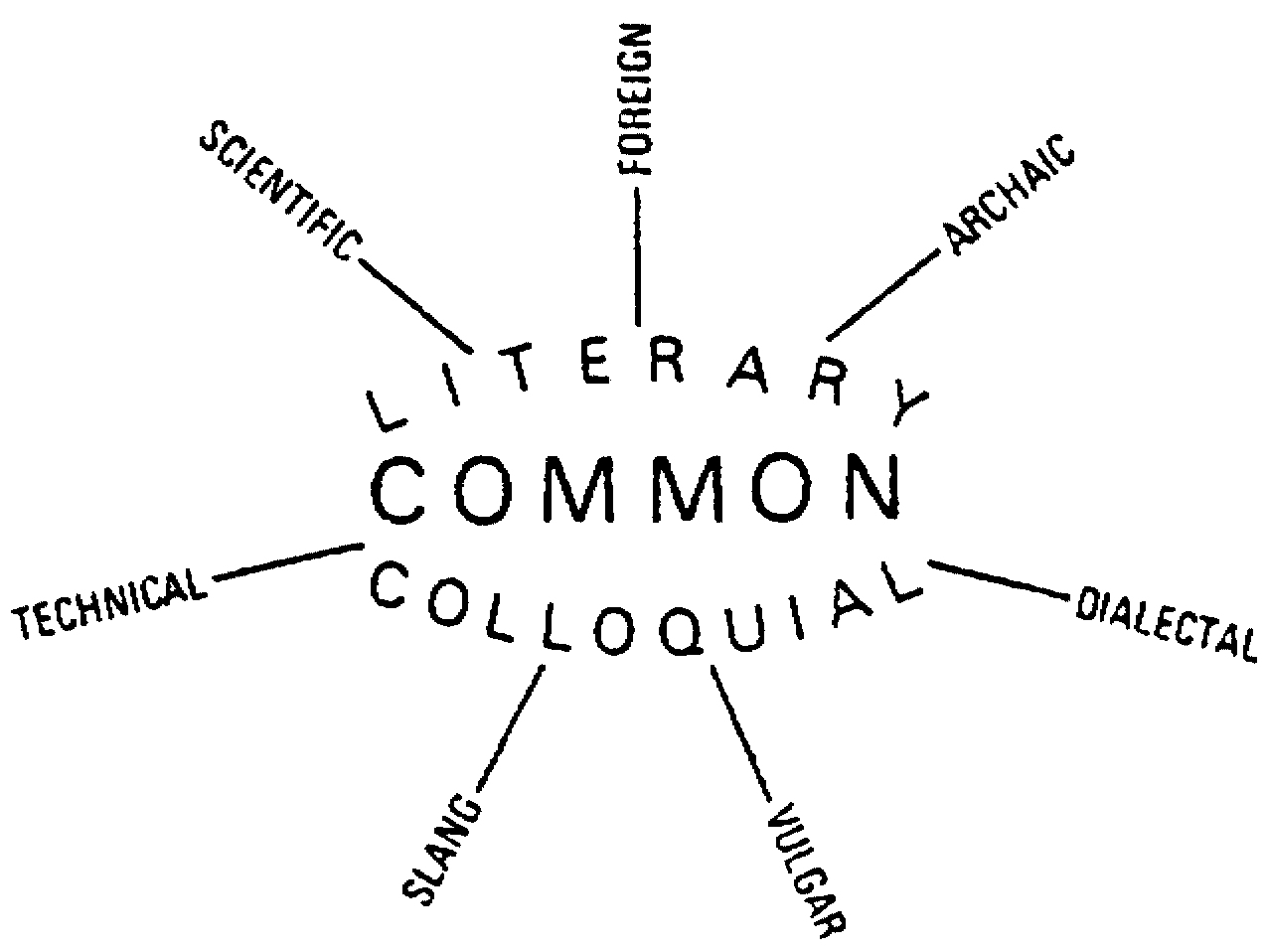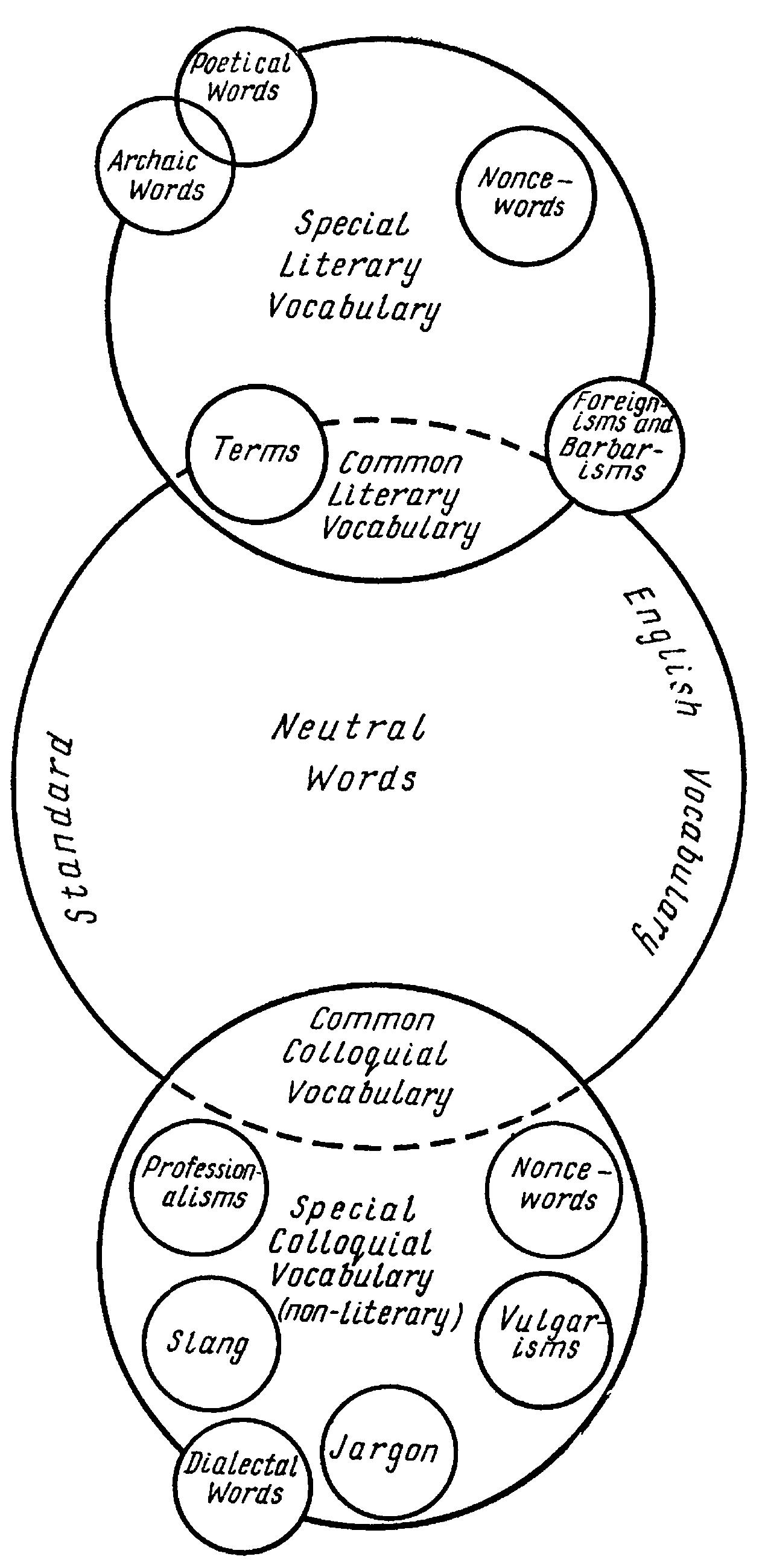
- •МиНиСТеРстВо образования РеСпубЛиКи беларусь
- •Contents
- •Introduction ............................................................... 6
- •Preface
- •Questions
- •Acknowledgements
- •Introduction
- •Lectures and Seminars
- •Seminar outlines Lexical units Topics for Discussion
- •Tasks and Exercises
- •3. Read the excerpt and answer the questions.
- •Recommended Reading
- •Recommended Dictionaries
- •4. Match the etymological doublets:
- •5. Give adjectives of Latin origin to the following nouns:
- •Questions
- •Recommended Reading
- •Recommended Dictionaries
- •Word meaning Topics for Discussion
- •Tasks and Exercises
- •In what component of meaning do these words differ?
- •Polysemy
- •Homonymy
- •Of english words
- •Recommended Reading
- •Recommended Dictionaries
- •Phraseological units Topics for Discussion
- •Tasks and Exercises
- •3. Compare the inner form of the correlative units and focus on the degree of their semantic equivalence:
- •4. Explain the meanings of the following word-combinations:
- •Recommended Reading
- •Recommended Dictionaries
- •Stylistic and social stratification of the english lexicon Topics for Discussion
- •Recommended Reading
- •Гальперин и.Р. Стилистика английского языка: Учебник. М., 1977.
- •Crystal d. The Cambridge Encyclopedia of the English Language. Printed in Italy, 1995.
- •Recommended Dictionaries
- •Regional varieties of the english language: Lexical differences Topics for Discussion
- •Tasks and Exercises
- •1. Read the excerpt and dwell on the influence the two varieties (British and American) have had on each other. American and british english
- •2. Give the American spelling of the following words and describe the main patterns of spelling differences between the two variants (use dictionaries):
- •5. Match the words with the same denotational meaning. State which of the words and word-combinations given below are used in British English /American English:
- •Recommended Reading
- •Ways of enriching and expanding the English lexicon Topics for Discussion
- •Key Terms
- •5. Make up a list of productive prefixes and suffixes with examples.
- •Tasks and Exercises
- •1. Pay attention to some widely used abbreviations:
- •Questions
- •Recommended Reading
- •Recommended Dictionaries
- •Recommended Reading Manuals of Lexicology
- •Encyclopedias of Language and Dictionaries of Linguistic Terms
- •Ministry of education of the republic of belarus
Recommended Dictionaries
Корсак Л.Д., Марціновіч Л.С. Англа-беларускі слоўнік фразеалагізмаў параўнальнага тыпу. Мн., 1984.
Кунин А.В. Англо-русский фразеологический словарь. М., 1984.
Спиерс Р.А. Словарь американских идиом. М., 1991.
Шасцімоўны слоўнік прыказак, прымавак і крылатых слоў / Пад рэд. Н.А.Ганчаровай. Мн., 1993.
Collins Cobuild Dictionary of Idioms. London, 1995.
Courtney R. Longman Dictionary of Phrasal Verbs. London, 1983.
Cowie A.P., Mackin R. Oxford Dictionary of Current Idiomatic English. Oxford, 1984. Vol. 1, 2.
Freeman W. A. Concise Dictionary of English Idioms. London, 1982.
Gulland D.M. and Hinds-Howell D.G. The Penguin Dictionary of English Idioms. London, 1994.
Longman Dictionary of English Idioms. London, 1987
The Oxford Dictionary of English Proverbs. Oxford, 1992.
Partridge E. A Dictionary of Cliches. London, 1981.
Seidl J., McMordie W. English Idioms and How to Use Them. London, 1978.
Stylistic and social stratification of the english lexicon Topics for Discussion
Stylistic classification of the English lexicon.
Social stratification of the English lexicon.
Style and usage labels in English dictionaries.
Key Terms
|
appreciative approving archaic argot Bible (biblical) cant colloquial common words dated derogatory dialectal emotive emphatic euphemіsm figurative foreignism formal historical humorous informal ironical jargon jocular literary |
neologism obsolete obsolescent offensive old-fashioned old use pejorative poetic political correctness pompous rare register rhetorical rude scientific slang spoken standard non-standard substandard subject field taboo technical vulgar
|
Tasks and Exercises
Make sure you understand the meaning of the key terms.
Compare style and usage labels in different dictionaries (see Recommended Dictionaries).
Make up lists of formal and informal words.
Study the diagrams and find points of sameness and difference.
Diagram 1

(From: The Shorter Oxford English Dictionary on
Historical Principles. Oxford, 1974. Vol. 1.)
Diagram 2

(From: И.Р. Гальперин. Стилистика английского языка. М., 1977)
Questions
What are the three main layers of the lexicon?
What groups of words make up the formal vocabulary?
Into what groups does the informal vocabulary fall?
In what does the difference between obsolescent, obsolete, archaic and historical words lie?
What is the difference between jargonisms and vulgarisms?
What is the difference between professionalisms and terms? Where does the difference lie?
What is understood by slang?
Recommended Reading
Антрушина Г.Б., Афанасьева О.В., Морозова Н.Н. Лексикология английского языка: Учеб. пособие / Hа англ. яз. М., 1999.
Арнольд И.В. Лексикология современного английского языка: Учебник для ин-тов и фак. иностр. яз. / Hа англ. яз. М., 1986.
